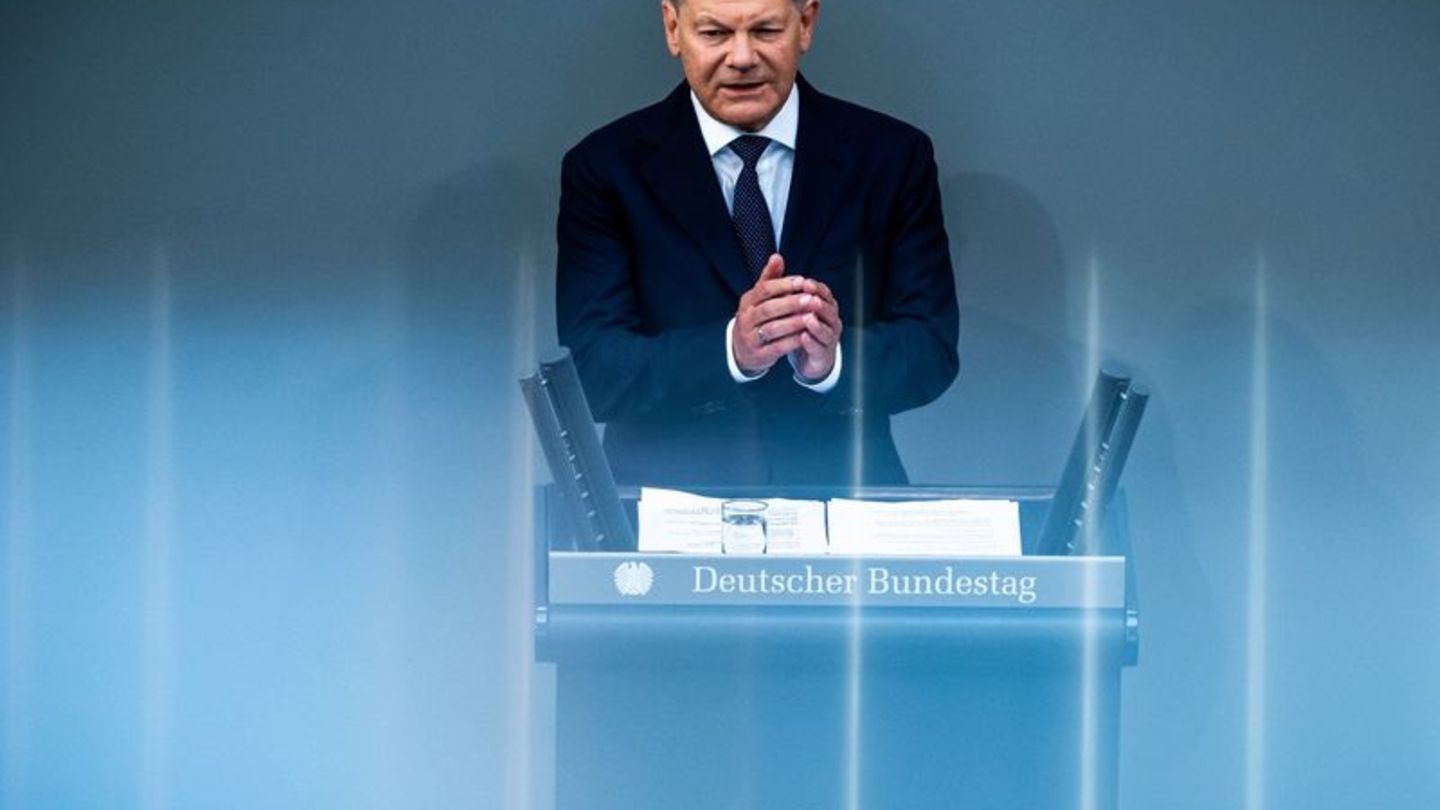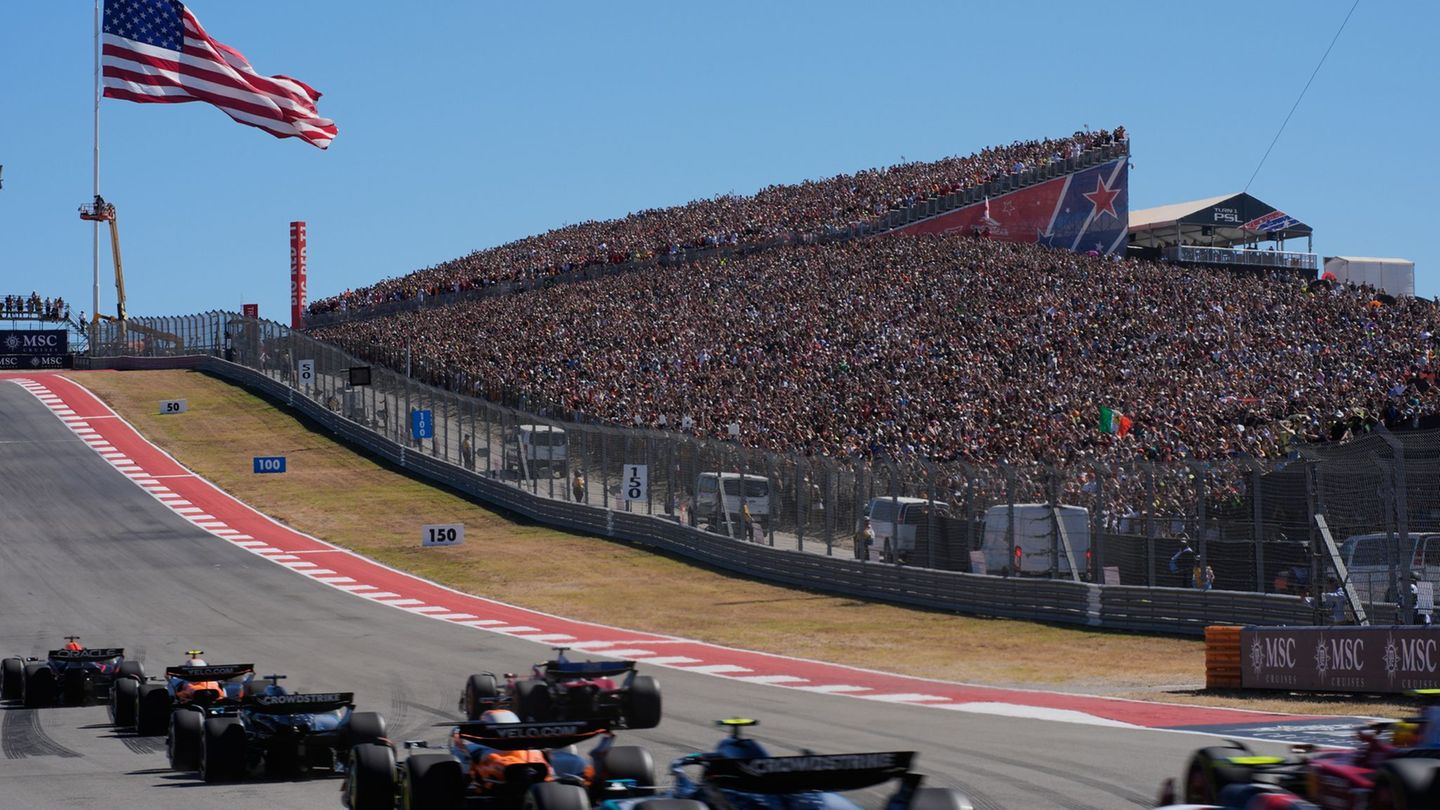The Chancellor explains the shift to the right in the European elections with a loss of trust in politics due to the numerous crises. His solution to this is to regain confidence through concrete action.
Chancellor Olaf Scholz has described the rise of right-wing parties in the European elections as a “turning point” and demanded consequences. “It has a clear impact that so many crises have simultaneously called into question trust and a sense of security,” said Scholz in his government statement in the Bundestag. “That applies to Europe and it also applies to Germany, and we must face up to that.”
However, the SPD politician stressed that we must not enter into “competition with populists and extremists” who abuse the concerns of citizens. Instead, we must provide concrete, practical answers to the issue. What is needed is the strengthening of internal and external security, the expansion of infrastructure and the modernization of the economy and energy supply. “It is important that we are successful in this area, because that is the basis of the necessary confidence.”
In the European elections, right-wing parties made significant gains in many countries, including the AfD in Germany. All three traffic light parties, however, suffered some drastic losses. Chancellor Scholz’s SPD slipped to its worst result in a national election in almost 140 years, at 13.9 percent. Scholz said the day after that they should not move on to business as usual. But there have been no concrete consequences so far. The next elections are scheduled for September 1 in Thuringia and Saxony. According to polls, the traffic light coalition is in danger of suffering an even worse defeat than in the European elections.
Merz accuses Scholz of unwillingness to self-criticism
In view of the election result, opposition leader Friedrich Merz accused Scholz of being “still incapable and unwilling to engage in self-criticism and to correct” his policies. He blames crises for the rise of left-wing and right-wing radicalism. But that is the wrong answer: “You are responsible for the fact that the problems in our country are not being solved,” the CDU/CSU parliamentary group leader accused the Chancellor.
No other country in Europe is currently causing as much uncertainty and ambiguity as Germany – the country that should actually be the anchor of stability in Europe, said Merz. The coalition is only being held together to maintain power; it no longer has any ideas, plans or concepts for Germany.
Scholz wants to flank budget with “growth boost”
The acid test for the traffic light coalition after the election defeat is now the 2025 budget, which Scholz wants to draw up before the summer break. There are very collegial, fact-based and confidential discussions about the budget and a “growth boost” for the economy, said the SPD politician in the Bundestag. “We will present the draft budget in July,” he promised.
Scholz, Vice Chancellor Robert Habeck (Greens) and Finance Minister Christian Lindner (FDP) had originally planned to make a cabinet decision on July 3. However, this date can no longer be met because a political agreement still has to be translated into a draft ready for approval. The cabinet decision is now targeted for July 17. The negotiators must find ways to fill a gap in the double-digit billion range.
“More security, more cohesion, more growth”
Scholz explained: “More security, more cohesion, more growth, these are the priorities for our country.” At the same time, he stressed: “There must be no cuts in social justice, health, care or pensions.”
In order to stimulate economic growth, there should be better conditions for people who want to continue working after retirement. He also hinted at simplifications in tax law, reduction of bureaucracy and improved depreciation rules. Strict action must be taken against the misuse of state benefits. “It is unacceptable that some people receive citizen’s allowance, for example, and at the same time work illegally,” said Scholz. “We will create the legal framework to ensure that this does not continue to happen.”
Source: Stern
I have been working in the news industry for over 6 years, first as a reporter and now as an editor. I have covered politics extensively, and my work has appeared in major newspapers and online news outlets around the world. In addition to my writing, I also contribute regularly to 24 Hours World.




